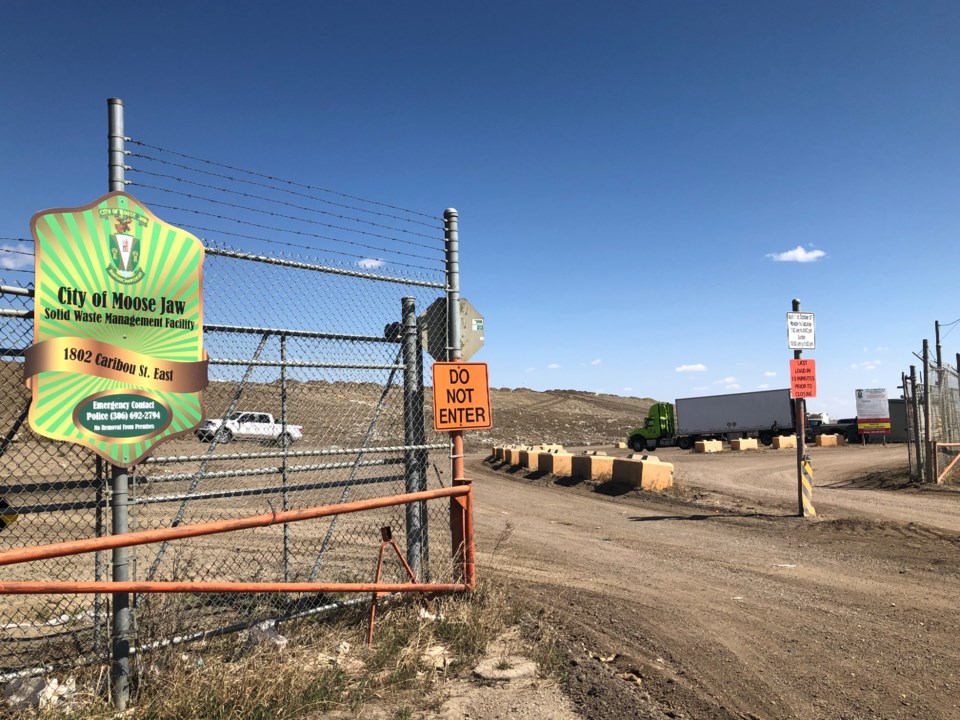(Editor's note: This story has been updated to reflect more accurate data).
Most homeowners can expect to pay a total of $123.48 next year for their residential waste collection, while people who use the landfill should also expect a hit to their wallets.
During its Dec. 11 budget meeting, council voted 4-3 to increase the residential waste collection rate to $30.87 per quarterly billing, with that amount to increase to $31.80 per quarterly billing in 2025 and $32.75 quarterly billing in 2026.
In favour were Mayor Clive Tolley and councillors Jamey Logan, Doug Blanc and Heather Eby. Opposed were councillors Kim Robinson, Crystal Froese and Dawn Luhning.
Furthermore, council voted 6-1 to set the landfill rates at $90 per tonne for residential standard waste, $12 for half-ton or small vehicle residential standard waste, $18 for half-ton or small vehicle non-resident standard waste and a flat fee of $350 for special handled waste.
Robinson was opposed.
These new rates — both increase by three per cent — take effect on Monday, Jan. 1, 2024.
The increase in residential waste collection is expected to generate an extra $42,193 for the utility, while the increase in landfill rates should generate an extra $254,178.44 annually, a budget report said.
The current quarterly collection rate is $29.97; next year’s increase will be 90 cents more per quarter, or an extra $3.60 per year. Therefore, the total amount that most homeowners will pay on their waste collection is $123.48.
The proposed increases for the next few years will apply only to the existing landfill, as the city will create revised rates once the new dump is operational.
Furthermore, commercial landfill rates and standard landfill rates must increase because the city has not changed either of them during the past three and six years, respectively, the report said. Meanwhile, the current residential waste collection schedule will not change.
In general, landfill rates for residents this year versus next year show:
- Standard per tonne: $80 / $90
- Standard per half-ton or small vehicle: $10 / $12
- Separated glass and concrete: $69 / Standard
- Special handled wastes, such as asbestos or medical: $339 flat fee plus $80 per tonne / $350 flat fee and $90 per tonne
- Decontaminated medical waste plus fee per tonne: $339 and $69 / Special
- Car wash waste per tonne: $69 / Standard
The non-residential rates this year versus next will be:
- Standard per tonne: $100 / $100
- Standard per half-ton or small vehicle: $16 / $18
- Separated glass and concrete: $89 / Standard
- Special handled wastes: $368 flat fee and $100 per tonne / $400 flat fee and $100 per tonne
- Decontaminated medical waste plus fee per tonne: $368 and $89 / Special
- Car wash waste per tonne: $89 / Standard
Bevan Harlton, director of operations, said the increase in the standard rate keeps Moose Jaw “loosely competitive” with Regina, which has a rate of $95 per tonne. Moreover, city administration based its decision to increase these fees on wanting to remain current with its municipal neighbours.
Finance director Brian Acker said the city charges homeowners with garbage and recycling fees on a cost-recovery basis and does not make a profit from this utility. However, the city makes money from the landfill, as any excess revenue is directed into the replacement reserve.
“We generate right now $1.6 million a year that is going to pay for that landfill … ,” he stated. “We want to be competitive with other centres. We don’t want to become a dumping ground for waste … .”
Tolley agreed with increasing the landfill rates, pointing out that inflation is about three per cent anyway.
“We’ve got to move forward. We’ve got to do the things that are painful. … if people are coming from other jurisdictions and dumping at our landfill, they should be paying a higher rate,” he said. “Local citizens should get a break.”
Luhning said that many people have called her over the years and were not happy with the extra waste collection charges. She understood the financial pressures the community was facing but also knew that council had to make tough budgetary decisions.
Robinson thought raising landfill tipping fees to remain current with Regina only punished residents and local businesses.
Logan said it was important to raise tipping fees because not only would it cost money to build a new dump, but it would also cost substantial money to close the current landfill responsibly.




